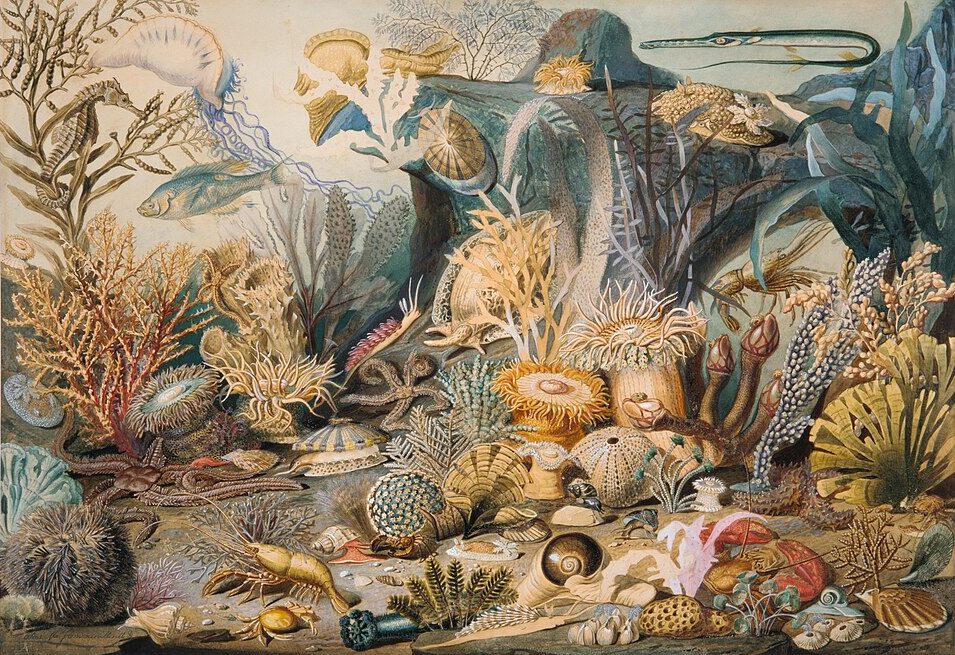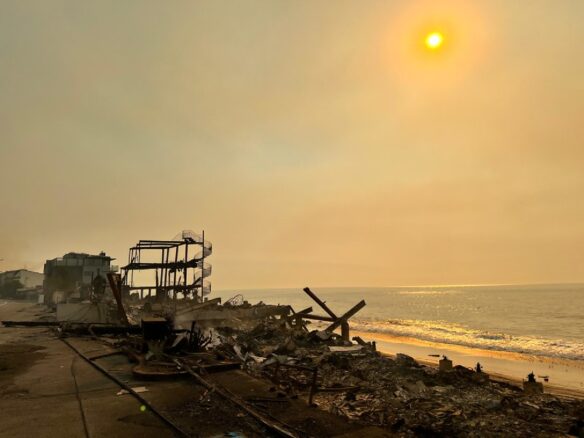Excerpt:
New satellite-based research reveals how land along the coast is slumping into the ocean, compounding the danger from global sea level rise.
As far as humanity is concerned, the transformation of our seas is “effectively permanent.”
Even after nearly three months of winter, the oceans of the Northern Hemisphere are disturbingly warm. Last summer’s unprecedented temperatures—remember the “hot tub” waters off the coast of Florida?—have simmered down to a sea-surface average around 68 degrees Fahrenheit in the North Atlantic, but even that is unprecedented for this time of year. The alarming trend stretches around the world: 41 percent of the global ocean experienced heat waves in January. The temperatures are also part of a decades-long hot streak in the oceans. “What we used to consider extreme is no longer an extreme today,” Dillon Amaya, a research scientist at the National Oceanic and Atmospheric Administration’s Physical Sciences Laboratory, told me.
The situation is expected to worsen. Research suggests that by the end of the century, much of the ocean could be in a permanent heat wave relative to historical thresholds, depending on the quantity of greenhouse gases that humans emit. Many other changes will unfold alongside those hot ocean temperatures: stronger hurricanes, rising sea levels, unmanageable conditions for marine life. Our seas, in other words, will be altered within decades.
Many detailed climate projections focus on the state of the oceans by 2100, a short time frame that allows for relative certainty. “That’s what policy makers want to know about,” Sandra Kirtland Turner, a paleoceanography professor at UC Riverside, told me. It’s also a year in which many people being born today will still be living, witnessing the consequences of what we’re doing currently. But Earth has many, many millennia ahead of it, and that deep future is being shaped by the burning of fossil fuels happening right now. If we continue down the path we’re on, Earth’s oceans may be irrevocably transformed over the next several hundred years. Imagine yourself in space, hovering over the planet as an astronaut would, a few centuries from now. “The ocean will still be blue and beautiful,” Amaya said. But even from space, you’d know something was different. And the closer you got to the waves, the more clearly you’d see how things went awry…









